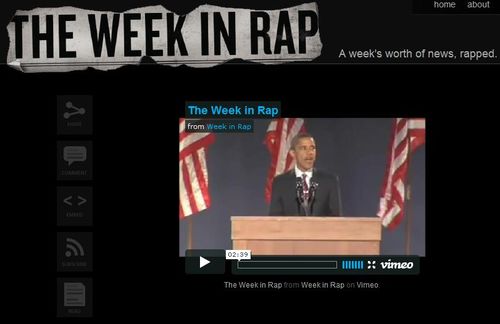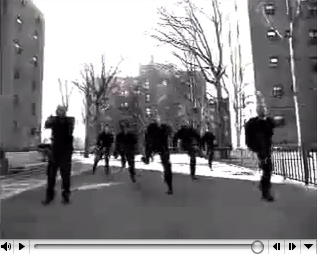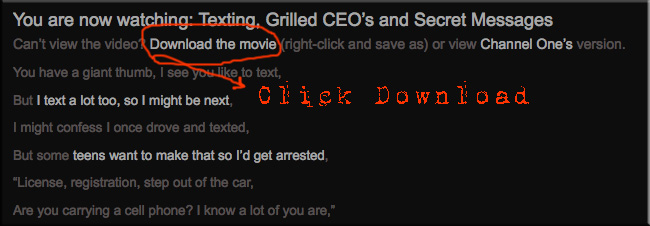All Posts (955)
Tuesday, June 30, 2009 12:30pm–3:30pm
Gateway to hundreds of free online resources focused on 21st Century Information Fluency.
- Digital Information Fluency (DIF) is the ability to find, evaluate and use digital information effectively, efficiently and ethically.
Internet Search Challenges - Evaluation Games
6 online learning games that teach evaluation skills. Multiple levels. NETS alignment!
Information Fluency Evaluation Kit. Online resources for evaluating author, publisher, bias, links, date, evidence, and accuracy.
- Evaluating Digital Information
Part Five of the series Five Things Today's Digital Generation Cannot do (and what you can do to help) discusses how searchers have to invent their own evaluation standards because schools are not teaching them.
- Teacher's Guide: Personalized Evaluation Searches
How to use Rollyo, Swiki and Google Co-op to create personalized search engines for safe Web page evaluation practice at all grade levels.
- Teacher's Guide to Action Zone Evaluation Games
Recommended uses for the Bad Apple and Use It! or Lose It! online evaluation games in this Kit, including tips and answers.
- IMSA Evaluation Wizard
How to use our Evaluation Wizard to assess how students evaluate what they find online. (The Evaluation wizard is a 10 step online guide to investigating websites.)
Evaluating Digital Information: Introduction, Research, Resources
In depth article on evaluation of digital resources by Dr. Carl Heine.
- Every school administrator wants to maintain a safe distance between objectionable material and impressionable students. Blocking students from potential contact with sexual predators and other mal-information is absolutely well-intended. However, blocking sites does not help students think critically about the quality of the information they retrieve or prepare them for the real world of information they encounter outside of school.
- Teachers may contribute to the problem by introducing filters of their own into learning experiences. In practice, it works like this: a teacher wants her class to access digital information, so she conducts a search ahead of time and selects web pages she finds credible and appropriate. Students then engage in a Web quest using pages or sites that have approved content. Aside from the intended benefits of the exercise, the students have missed an opportunity to learn skills in searching and evaluating that they need in the 21st century.
- Our research suggests that students who search for digital information are better able to judge its credibility than students who are handed information. In a pilot study, over 100 middle school students were given a question and three relevant web pages for answering it. Two of these pages were credible. The success rate for answering the question using relevant information was 73% when the task involved reading the three pre-selected pages.
Workshop Resources: Assessing Information Fluency
Guided tours of 21CIF resources perfect for workshop presentations. This is a series of webslide style sets of pages that detail 'Speculative Searching" and "Investigative Searching".
MicroModule: Checking the accuracy of information found on a webpage.
A one page overview of how to check the accuracy of information. Includes a link to an online learning game to help learn essential concepts.
Try this interactive micromodule companion for a hands on experience in determining the accuracy of web-based information. Test your skills at:
- finding embedded evidence
- checking evidence for accuracy
- triangulation of data
Information Fluency Newsletter
Low volume, high content free newsletter to keep you posted about new resources and developments from 21cif.
- Subscribe to our free email newsletter and receive periodic updates about 21CIF including professional development opportunities and new resources.






Lyrics 3.20 "The listener’s experience is enhanced visually with a montage, and links embedded in the song lyrics lead to articles and videos that explain the stories in more detail. Cofounder Blake Harrison told CBS that kids want to learn but many students lack access to news that engages them: “It’s hard to care about something that you don’t know about.” "Flocabulary co-founder and The Week in Rap creator Blake Harrison believes that learning about the news in this format will encourage students to dig deeper. “We use humor to get kids involved, but the goal is to give them an opportunity to learn more,” says Harrison. To that end, the lyrics to the songs contain links to news stories from prominent newspapers and TV shows. Flocabulary’s goal for the project is to have teachers play the short videos in their classrooms on Monday mornings. The creators think it’s a great way to focus student attention after a weekend, and also a great way to spark a discussion on current events." TECH TIP: My county blocks Vimeo so i can't see the vid on the main page...but if you go down to the lyrics below the vid and click download the video comes up as a Quicktime .MOV that we can see and broadcast on our daily news show...."You have a giant thumb, I see you like to text,
But I text a lot too, so I might be next,
I might confess I once drove and texted,
But some teens want to make that so I’d get arrested,
“License, registration, step out of the car,
Are you carrying a cell phone? I know a lot of you are,”
